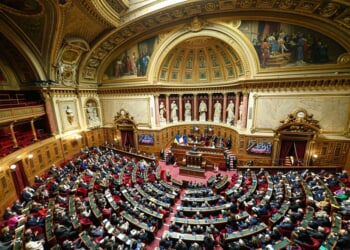The news that most Reform controlled councils are going to increase Council Tax shouldn’t come as a surprise, as I largely predicted it in July:
I’ll be very pleased if Reform manage to eliminate “waste” – and it may be millions – but it’s unlikely to result in more filled potholes or a reduction in council tax.
Things were apparently looking good when in August, Reform-advocate and GB News presenter Matt Goodwin trumpeted “£100 million in savings for taxpayers in the 100 days since the party gained control of ten councils”.
This is about one half of one per cent of their total budget.
Fast forward to October and the FT reported: “Reform likely to raise Kent council tax after cost-cutting drive falters”.
The Reform Leader of Kent, contending that it was “an overheard piece of gossip”, didn’t confirm or deny it. Although she highlighted various savings, these were single figure millions. Kent’s total budget is over £2.6 billion, excluding schools.
There’s a certain amount of arrogance around. On the left it’s:
- Guardian reader
- Labour voter
- Labour member
- Labour activist
and so on to be a ‘good person’.
Reform talk about the “Uniparty”, Labour and the Conservatives being two sides of the same coin, both having presided over ever-increasing immigration, debt, taxation, etc. – and every caricature starts from an element of truth.
Several commentators have concluded that Labour believed simply having the grownups in the room would sort out Britain’s problems, and Reform seem to be under a similar misapprehension, the FT quoting a senior Kent cabinet member:
Everyone thought we’d come in and there were going to be these huge costs we could cut away but there just aren’t.
I previously wrote that central government dumps on local government, and the extra costs are paid through council, not income, tax and I’d further contend that this has been (unwritten) Treasury policy for decades.
Local government really started being squeezed from 2010 with local referendums to prevent “excessive” council tax rises introduced from 2012/13.
The local government finance settlement varies from council to council, depending upon individual circumstances, and includes a bewildering array of grants, but a key part is:
…all councils again being allowed to increase bills by 3 per cent, and those with social care responsibilities by a further 2 per cent, without a local referendum.
The important word is “allowed” which would be better as “expected” or “instructed” as, although it’s unlikely anyone in Whitehall would admit it, it’s anticipated that councils like those now controlled by Reform will increase their council tax by 5 per cent, and this is built into their settlement, ‘…central government dumps on local government, and the extra costs are paid through council, not income, tax…’
Kent’s Council Tax requirement for 2025/26 is £994,287,655, almost £1 billion.
A 5 per cent increase is £50 million, i.e. the savings required to simply stand still, and that’s without the inflation the Labour government’s policies have put into the economy.
If all councils [in England] put bills up by the maximum allowed, revenues are expected to increase by around £2.0 billion, which is the increase in central government grant or the reduction in total local government spending required to freeze English council tax.
The figures quoted are for 2025/26 but were finalised in February, ahead of the start of the fiscal year in April. The discussions reported are for 2026/27, but the figures are unlikely to be significantly different.
Reform have a lot of energy and enthusiasm and had an influx of former Conservative councillors which should bring experience of local government.
They waltzed into Kent, and presumably other councils, expecting lots of low-hanging fruit, which weren’t there, but did they know the scale of savings required just to freeze council tax? The figures aren’t difficult to find, about £50 million, and inflation, to freeze Kent’s council tax.
I haven’t even mentioned the increasing demand for social care – and the current lack of a solution to its long-term funding – which together with inflation and the transfer of spending from central to local government makes it difficult to see many council tax increases halted, let alone reversed.
For 2026 the polling currently suggests Reform could, again, do well in local government elections. They would be advised to really do their homework and frame their promises accordingly.
Beyond that the Conservatives have identified £47 billion of savings which, in the greater scheme of things, is modest and could be adopted by a desperate Chancellor. A civil service recruitment freeze and risking the wrath of the Left with a raid on overseas aid would release funds for an unreconstructed public sector and to pay off increasingly militant unions.
Talking about savings is easy, realising them is harder and it’s impossible to stop incumbents pinching anything good.


![Scott Bessent Explains The Big Picture Everyone is Missing During the Shutdown [WATCH]](https://www.right2024.com/wp-content/uploads/2025/11/Scott-Bessent-Explains-The-Big-Picture-Everyone-is-Missing-During-350x250.jpg)













